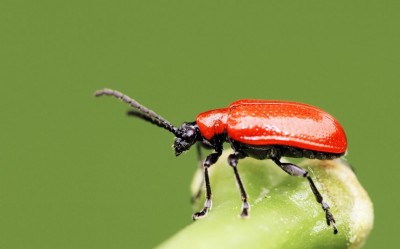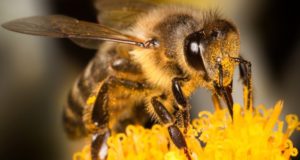
Image source: Telegraph
Gardening without synthetic chemicals is a commitment, but well worth the benefit to the health of your environment and family. Most of the cost lies in sweat equity; most of the confusion lies in knowing which techniques are truly eco-friendly.
Many recipes for natural repellents include dish soap. While it’s true that dish soap works, it is not organic. First, most dish soap on the market is not true soap, because it’s not saponified animal or plant fat, but a manufactured detergent. Detergent includes synthetic chemicals; some of the popular brands include ingredients that have been connected to muscular disorders and cancer.
Secondly, most dish soap is formulated to kill bacteria, which means all bacteria. If you’re committed to organic gardening, you need to protect good bacteria by not exposing it to harmful detergent.
Thirdly, recipes that include detergent often state it makes the concoction stick to the leaves. Yet, other ingredients, which are often garlic and hot pepper, already have a sticky quality. To test that, rub a clove of crushed garlic in your hands. Are your hands sticky? Better yet, rub a hot pepper on your fingers, and count how many days pass before you can comfortably rub your eyes.
Beyond Garlic and Hot Peppers
We’ve already established that a concoction including garlic or hot pepper has enough sticking power. Although those are strong scents to the human nose, there are many other herbs and spices that repel insects.
New Natural Fertilizer Doubles Garden Production!
Experiment with infusions that include basil, cinnamon and lavender. The concoctions will react differently depending on the species you’re treating. Test your homemade repellent by spritzing it on one leaf of a plant on a sunny day. If the leaf shows signs of deterioration within 48 hours, discontinue use. Alternatively, spray the ground around the base of the plant with an herbal concoction.
I avoid sprinkling herbal powders on the ground, because children and pets work in my garden. Pepper flakes and ground cinnamon are irritants on bare feet, hands and paws. If the powder is then transferred to an eye, mouth or nostril, the effect can be painful.
Another way to protect plants is to pack small cotton bags with hair clippings from your pets or livestock, and tie them to the stakes around the garden, or surrounding trees. The odor deters rodents, birds and sometimes, even larger animals, such as deer.
Guard Animals
Although I’m not a cat person, cats will eradicate small animals from your garden. The downside is that some cats like to roll in plant beds. If you’re using them as a guard animal, you can build barriers around the plants.
Story continues below video
The fastest way to build individual plant barriers is to cut the bottoms off five-gallon buckets, and tap them into the soil around the plants with a rubber mallet. Be certain to drill holes in the buckets, at ground level, so the plants will not be drowned by rain water. The leftover bottoms of the buckets can be used as stepping stones in the garden, but they need to be staked or weighted.
The best repellent of mice, rabbits, birds, squirrels and stray cats I have is my Yorkshire terrier. He not only steps gingerly around the plants, but guards them ferociously. He does not tolerate any other animal in the garden, and guards the perimeter and interior around the clock. To boot, he’s a wonderful companion animal both indoors and outdoors.
Unfortunately, my Yorkie kills snakes and toads, which are an important part of a healthy ecosystem. He also makes a sport of eating bees, but is not able to catch enough to deter pollination.
Repurposing Material From The Kitchen And Yard
You can gather a bulk of fertilizer by failing to discard materials around your own home. Your kitchen and yard likely produce more useful “waste” than you realize.
One of the most prevalent myths about composting is that animal products should be avoided, but it’s wasteful to discard meat scraps and leftover eggs. Rather, save them in a container in the freezer or snowbank to use for underground composting.
When the ground thaws, dig several holes in your garden, each two feet deep. Place a handful of scraps into each hole, then bury it. This is equal to the time-tested practice of burying fish in a garden. It acts as a slow-release fertilizer for most of the growing season. Of course, there are other good all-natural fertilizers, including one known as ProtoGrow.
Many people dump cooking water down the drain, but if you’ve boiled, steamed or poached food in that water, it has been transformed into a valuable fertilizer. Better yet, pour hot cooking water directly onto weeds to kill them. If poured directly from the spout of a tea kettle, the heat will be localized.
Leaves and grass clippings from the fall season can be wintered outside in a pile, garbage sacks, or large containers, rather than sent to the landfill. Some of the material will putrefy, but that is not harmful. Spread the material over the garden when the ground begins to warm, to encourage insect and worm activity.
What are your all-natural gardening tips? Let us know in the comments section below.
Sign up for Off The Grid News’ weekly email and stay informed about the issues important to you
 Off The Grid News Better Ideas For Off The Grid Living
Off The Grid News Better Ideas For Off The Grid Living




